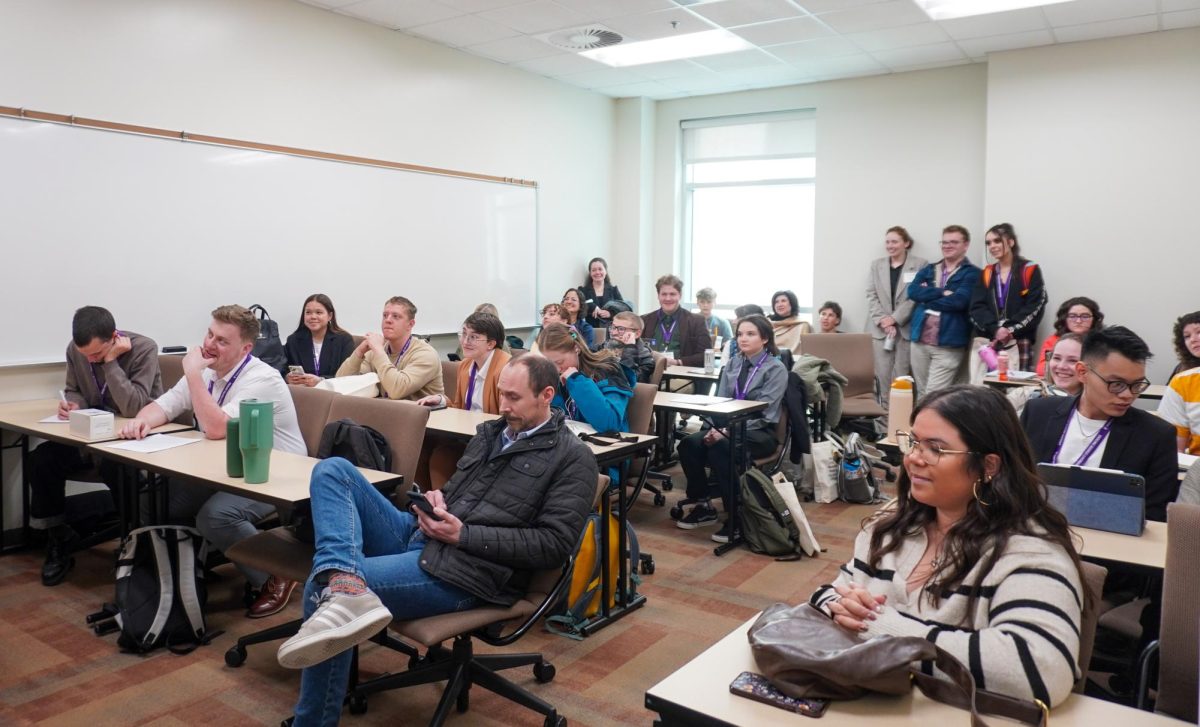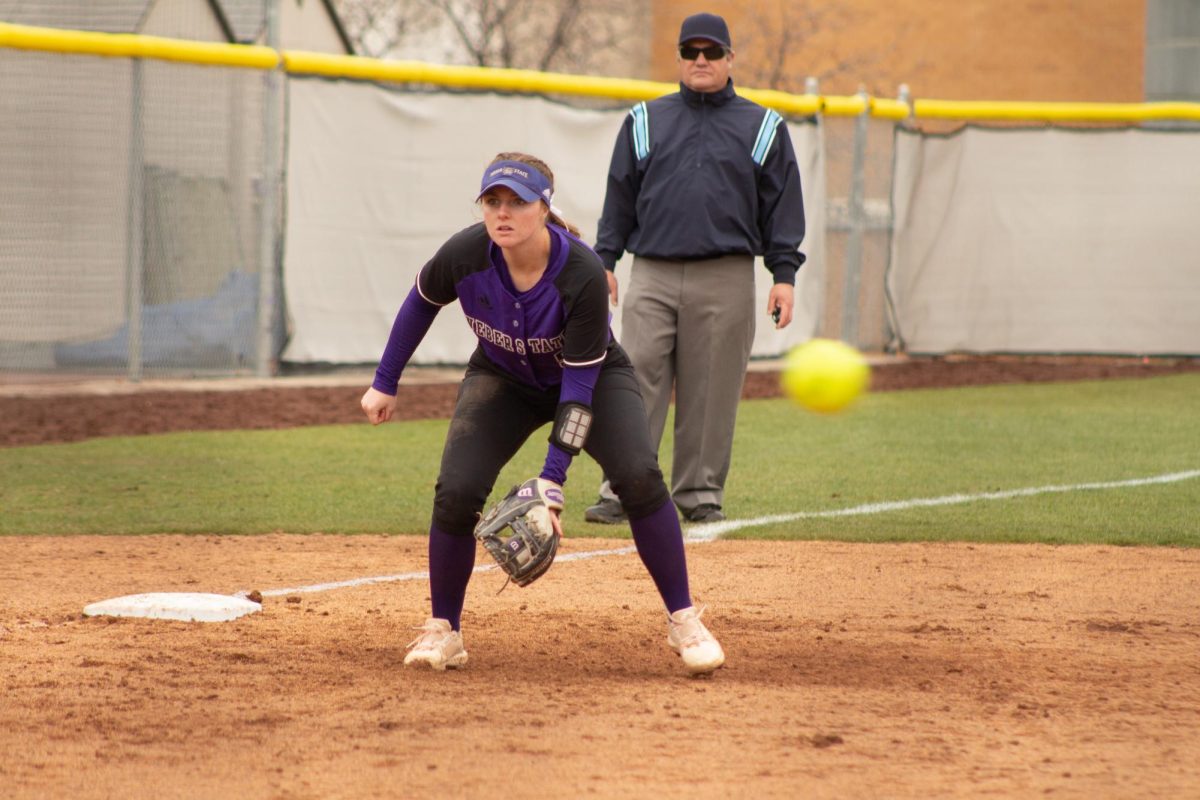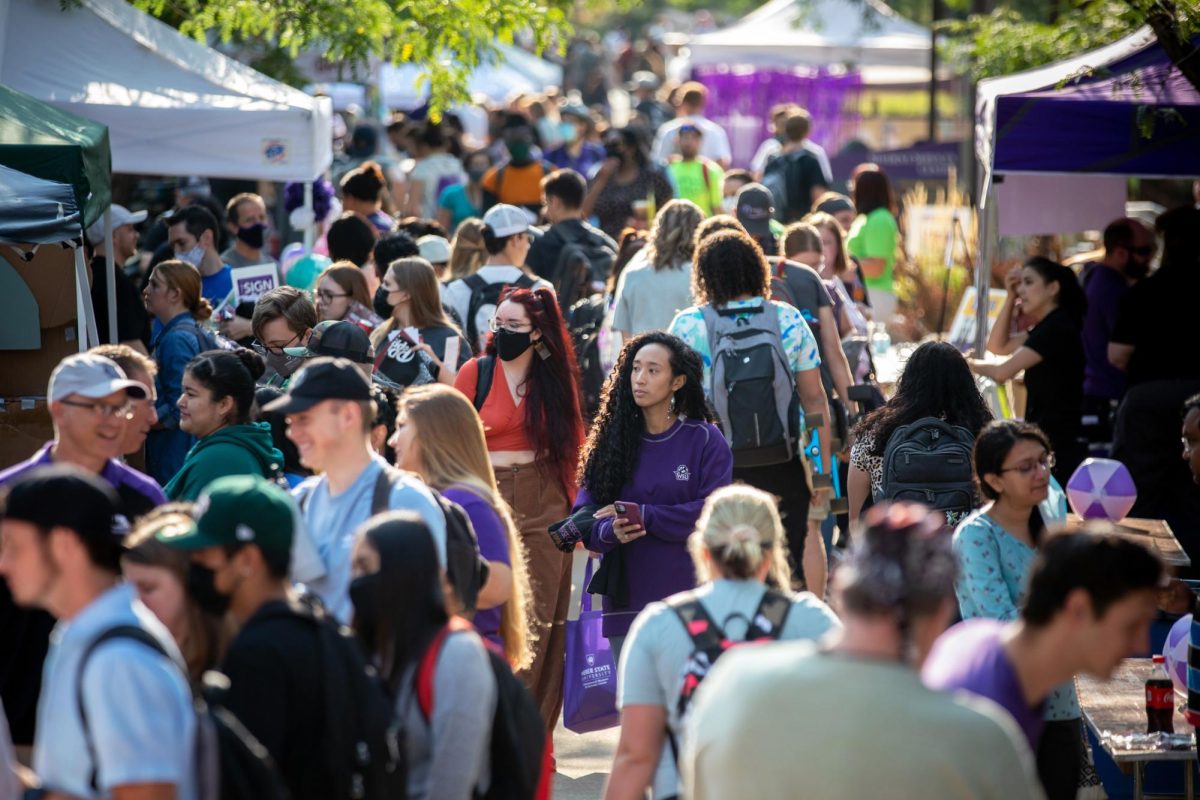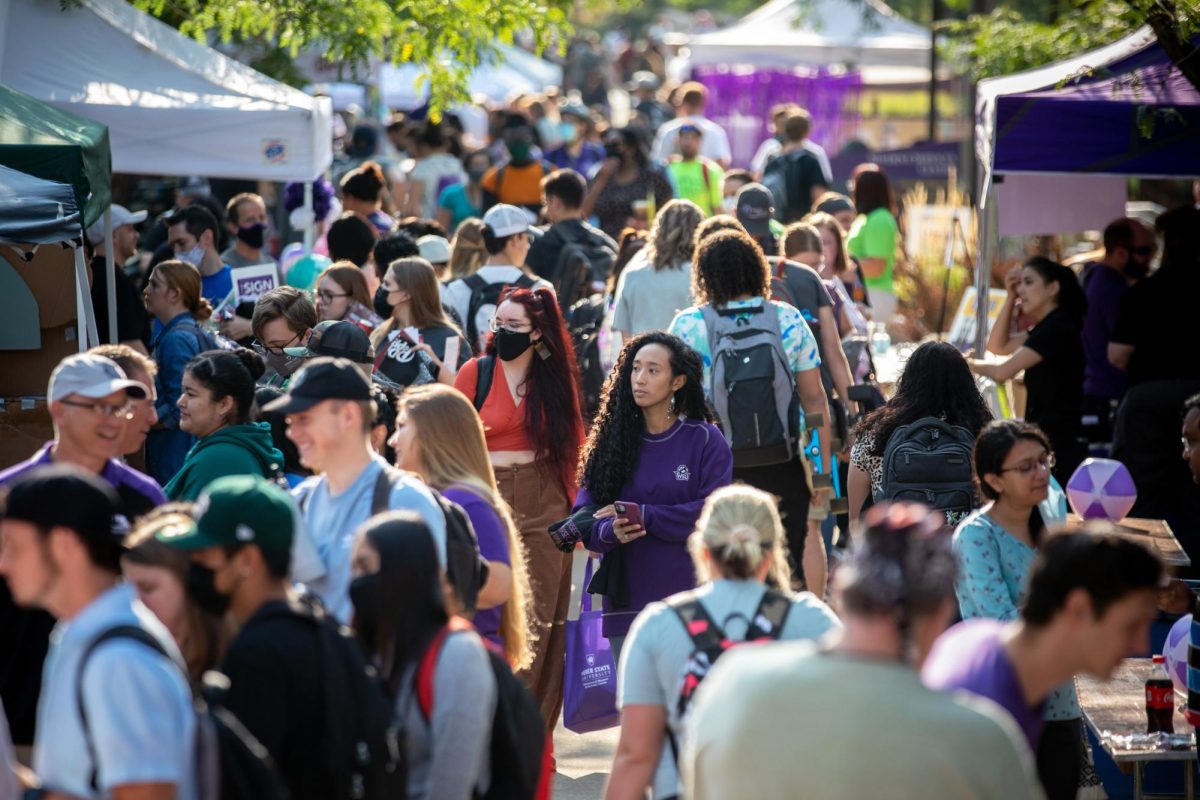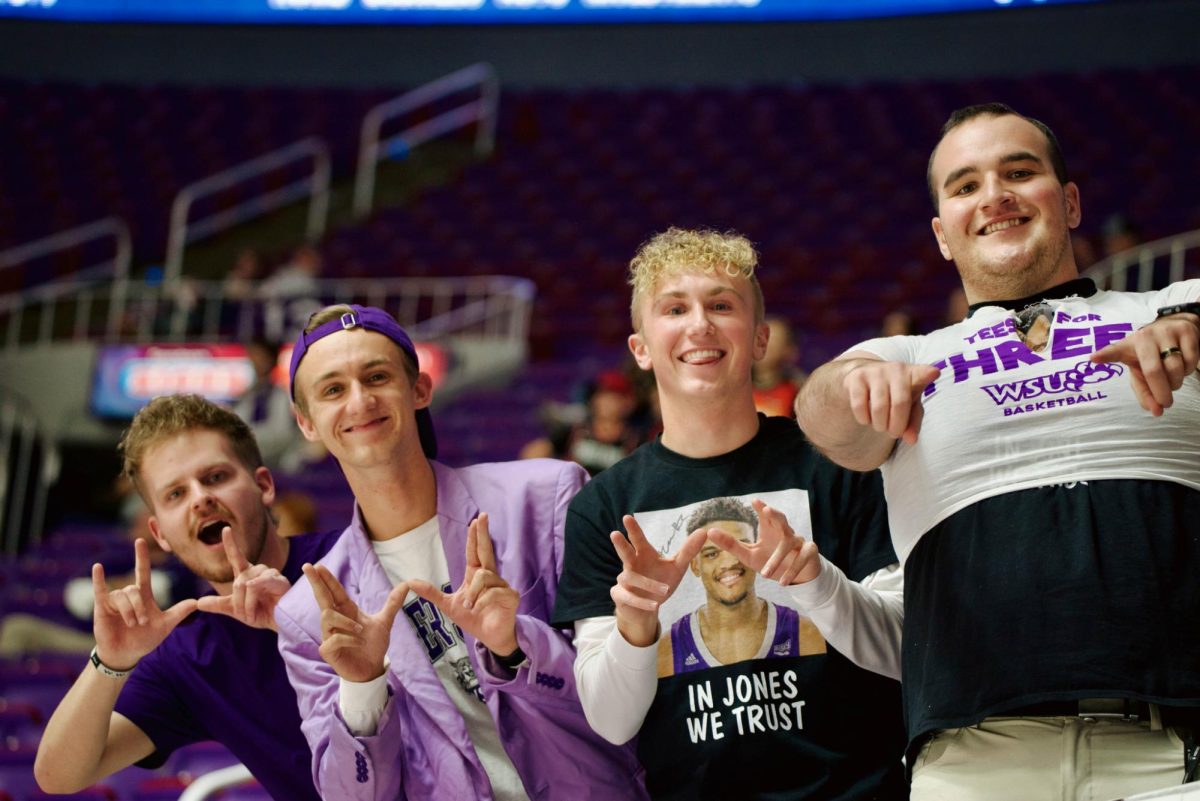Thirty-nine percent of Weber State University’s student body is non-Caucasian or identifies as LGBT. With a plethora of scholarship money and programs like Dream Weber, WSU attempts to represent everyone.
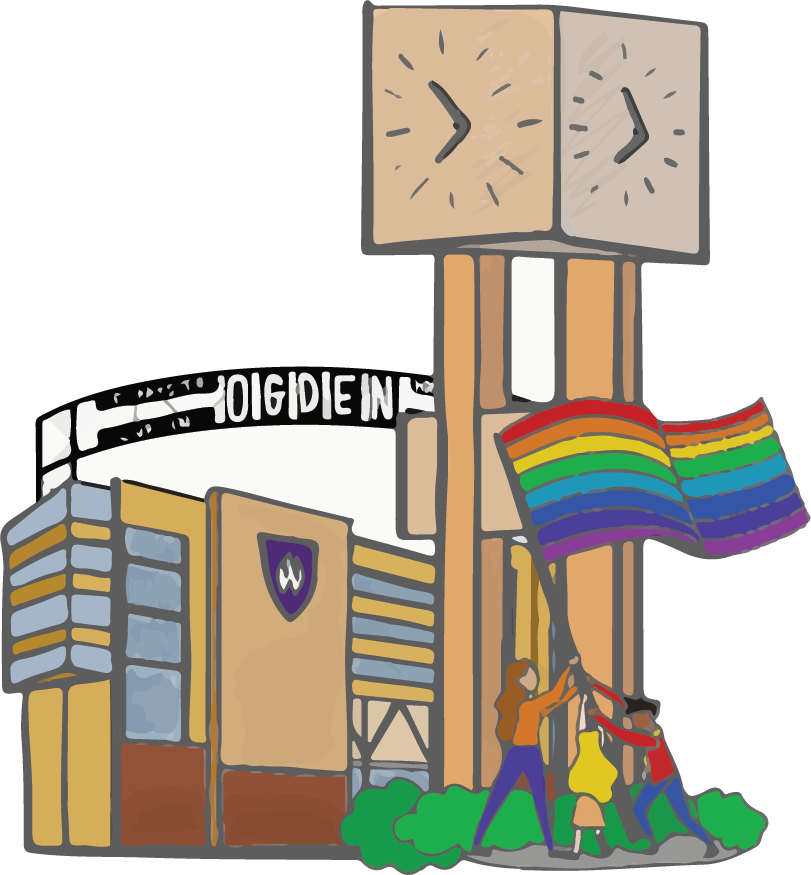
However, leaders of diverse campus organizations aren’t seeing the student and community involvement they would like.
Organizations at WSU that often feel overlooked are the American Indian Council, Black Scholars United, the LGBT Resource Center and Diversity and Inclusive Programs.
Jayson Stokes, coordinator of the LGBT Resource Center, wants students to be able to go to centers across campus and attend events, whether they identify with specific programming or not, because marginalized identities need supporters and allies.
“We partner with other organizations to let people know that everyone is welcome here,” Stokes said. “We have a place here for everybody.”
Nadina Delgado, American Indian Council president, said diverse organizations should openly claim to be more inclusive.
“In our club, you don’t have to be Native American to join. You can just come and support,” Delgado said. “There are only about ten of us involved in the American Indian Council, so we really need to work on including others.”
Native American students make up less than one percent of the WSU population, according to WSU’s Reports and Publications.
Delgado said minority organizations need support from students who do not identify the same as they do, but she also noted she would love if more Native Americans who attended WSU would get involved in the council.
When hosting events, WSU organizations advertise to their audience through social media. Delgado said WSU and its various social media accounts should support and help promote smaller organizations like the American Indian Council.
“If Weber took initiative in advertising not only our events but even smaller clubs and told the community about volunteering, it could result in a better turnout,” Delgado said.
Annually, WSU hosts the Native Symposium, a weeklong event aimed at educating the WSU and Ogden communities about Native American culture. WSU partners with the American Indian Council, but because it is WSU’s event, the council does not promote the event as much, according
to Delgado.
Delgado said she cherishes her Shoshone culture, and she would have loved to have seen more people involved and attending the event last November but said there was not enough advertising done on WSU’s behalf.
According to Delgado, there were five members of the council trying to advertise the event. These members relied on WSU’s social media pages to help spread the word.
Similar to Delgado, Stokes is the only coordinator for the LGBT Resource Center. Andrea Hernández, Diversity and Inclusive Programs coordinator, said she would love to see more events centered on LGBT topics.
“The only way we can see more LGBTQ events is if we get more support in the center,” Hernández said. “Jayson has to deal with keeping a resource center, grants and scholarships. I could only imagine everything he has to do, plus organizing and
promoting events.”
Hernández urges students who might feel like they do not belong in a place of diversity to join club meetings and get involved in organizing events. She said she would love to have people help her with the organization while she could focus on events.
Hernández said if she had an assistant, they could run a diversity booth in the Shepherd Union to recruit students to the center at least once a week. The assistant could help in promoting events to different classrooms, hand out flyers and work on preparing programming. Meanwhile Hernández could focus on handling events that are held by Diversity and
Inclusive Programs.
Hernández would like to enlist the help of a graphic designer for diversity programming advertising. She said this might increase student
involvement at events.
Having these events to host is important for Hernandez — and she wants to bring more to WSU — but without students and community members attending, the events will have been for nothing, she said.
Bessie Pettigrew, the American Indian Council Senator, said it’s important for her that non-Native Americans join the council because she wants people to know how much Native American culture matters. Native Americans are not just a group of people who have come and gone through history but people who still exist today, Pettigrew said.
“Representing my culture and getting people to know the importance of it means a lot,” Pettigrew said. “Debunking the stereotypes of ‘Native Americans came and left with the dinosaurs’ is why it’s important for me to share and teach about my culture.”
JaLisa Lee, president of Black Scholars United, was surprised when WSU would not promote scholarships for students to get involved within
diverse programs.
Lee said doing this would be beneficial for students who need the money and show more visibility to smaller clubs. The more involved students get, the more opportunities there are for shining a light on club events.
Lee said she hopes BSU attracts more visibility. She recalled attending her orientation and hearing no mention of diverse clubs. However, there was repeated recognition of the WSU Student Association, fraternities
and sororities.
Lee wants more students and Ogden community members to be involved in BSU because she wants all people to feel included and comfortable.
“We don’t discriminate because we’ve already been discriminated against,” Lee said. “We will not shut out anyone who wants to learn about who we are or our culture. Our main focus is to talk about issues among the black race and the commonality of
being students.”
Despite not receiving the involvement they desire, WSU diverse organizations will continue to push for programming that represents the entire student body.








